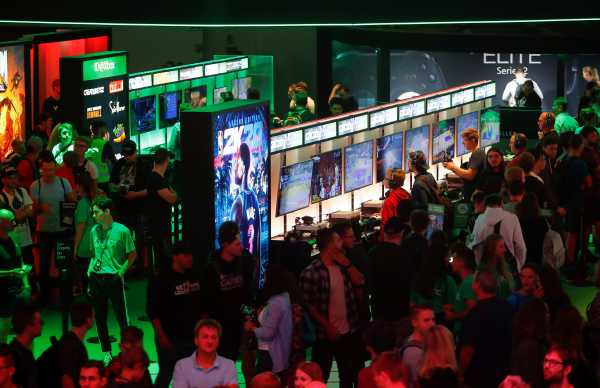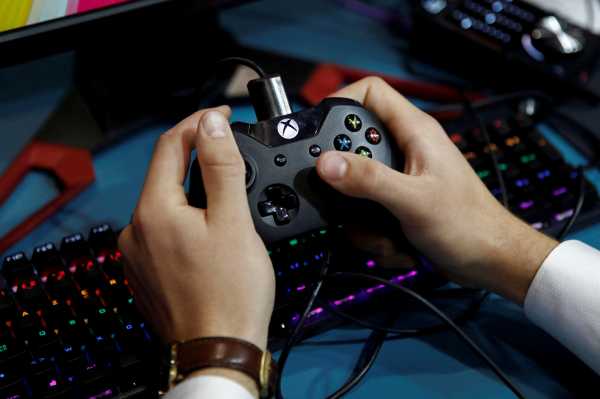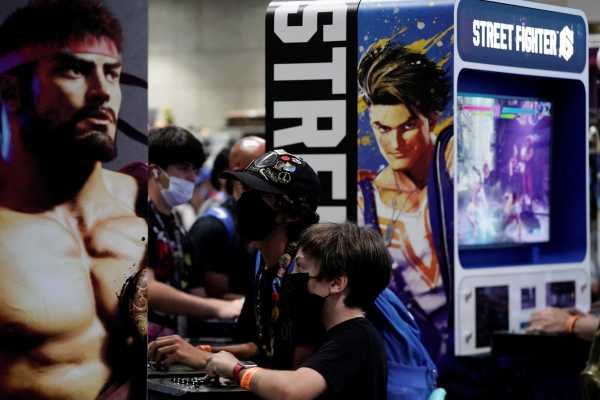Gaming industry’s fortunes fade as spending squeeze follows pandemic bump



1/3
An attendee uses a Microsoft Xbox One controller while playing a video game at the Paris Games Week, a trade fair for video games in Paris, France, October 29, 2019. REUTERS/Benoit Tessier/File Photo
Aug 10 (Reuters) – Gaming companies are facing a slowdown in demand for video games from pandemic highs, raising doubts about their ability to weather an economic downturn.
Rising prices and a lack of hit titles have added to problems for video game publishers Activision Blizzard Inc (ATVI.O) and Electronic Arts (EA.O) that are also battling supply-chain delays and a shift in consumer choices due to easing lockdowns.
The latest proof of that came on Tuesday from gaming platform Roblox (RBLX.N) whose revenue growth eased to just 30% from 83% two quarters ago.
U.S. consumer spending on video games fell 11% in June and is expected to decline 8.7% this year, data from analytics firm NPD showed.
"The job market is still hot, there is plenty of froth on the economy causing aggressive inflation and the relaxation of COVID restrictions are leading consumers to consider spending on more experiences outside of the home," Jesse Divnich at SVP Games Research said.
Activision Blizzard reported smaller-than-expected quarterly profit, while rival Electronic Arts and Take-Two Interactive (TTWO.O) warned of disappointing sales ahead.
"When you have 50% of big bank economists saying we might be in a recession in the next quarter or two, my attitude is… we're in a recession and… we are seeing some softness," Take-Two top boss Strauss Zelnick told analysts.
Console makers too have taken a hit as gaming revenue dropped for Xbox-maker Microsoft (MSFT.O), while PlayStation-maker Sony (6758.T) cut its forecast and Nintendo (7974.T) posted lower sales.
The weak demand comes as double whammy for these firms that are struggling with component shortages.
Gaming chipmakers are seeing a knock-on effect of the cooling demand. Advanced Micro Devices Inc (AMD.O) said sales of its sales of graphic gaming cards fell, while Nvidia (NVDA.O) flagged a 19% sequential drop in revenue.
Analysts and company executives, however, expect the industry to grow above pre-pandemic levels, leaning on the launch of delayed titles and an easing of parts shortages.
Data firm Newzoo showed the global games market will generate $196.8 billion in 2022, gaining 2.1% compared to a 7.6% jump in 2021.
"Video games aren't bulletproof, but they do tend to fare well during challenging times," Steven Bailey, an analyst at research firm Omdia said.
Reporting by Tiyashi Datta, Ankur Banerjee, Eva Mathews and Nivedita Balu in Bengaluru; Editing by Arun Koyyur
Our Standards: The Thomson Reuters Trust Principles.
Source:www.reuters.com



